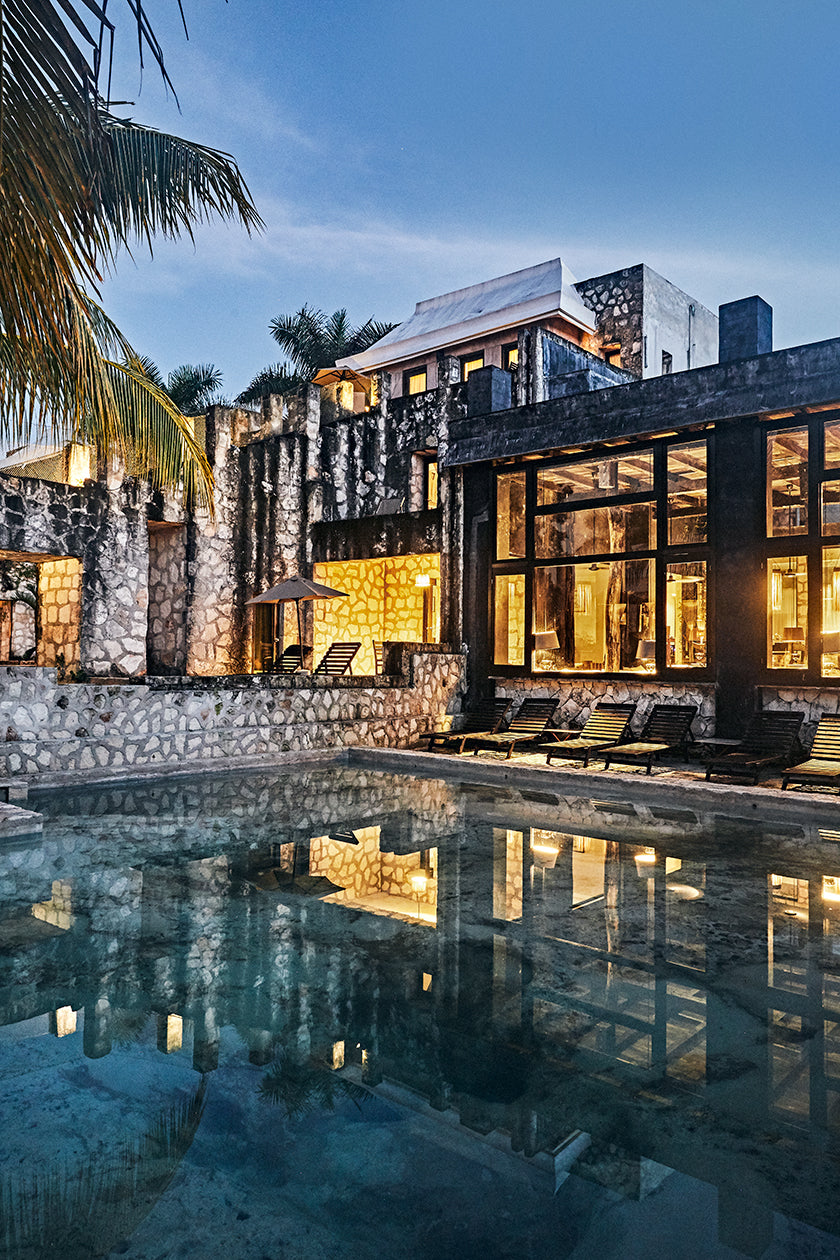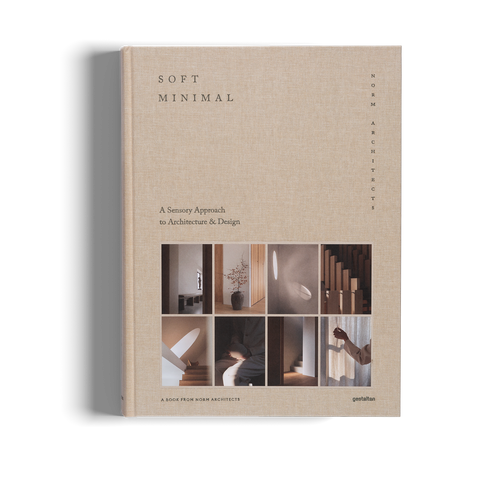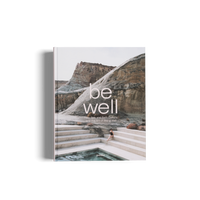
08/2020 Escape travel
With a string of gypsy-chic hotels, spas, and perfumery, the founder of Coqui Coqui is letting the rest of us in on his Yucatán dream.
Nicolas Malleville did not intend to be a hotelier—it just worked out that way. After visiting Mexico in between modeling jobs for fashion houses (Gucci, Burberry, Tod’s), he never wanted to leave. But to own land as a foreigner, he had to operate a business. So Malleville started to build a mini, palm-treed-dotted empire on the Yucatán peninsula, which now includes a perfumery housed in a sixteenth-century building in Valladolid and five exquisite hotel properties.

Situated on a lagoon, overlooking Mayan ruins, the thatched-roof property is lush and jungle-like. There are only four rooms, adorned with agave-fiber linens, minimalist stone bathtubs, and breezy hammocks for swaying away the day. (Photo: Maya Visnyei, Be Well)
The location in Coba is especially serene. Situated on a freshwater lagoon, overlooking Mayan ruins, the thatched-roof property is lush and jungle-like. There are only four rooms, adorned with agave-fiber linens, minimalist stone bathtubs, and breezy hammocks for swaying away the day. The spa (which can be visited even if you are not a hotel guest) features a cenote-inspired pool and an extensive array of treatments guided by the local flora and Yucatán traditions.

Two symmetrical limestone towers feature outdoor dipping pools, lounge areas, and guest suites that blend into the natural surroundings. (Photo: Maya Visnyei, Be Well)
Anyone who has basked in the Mexican rays will appreciate the post-sun facial, which involves layers of local honey—nicknamed the “gold of the Mayans” for its healing properties—homemade yogurt and cucumber water, followed by a hydrating mask with aloe vera freshly cut from the hotel garden. You can soak the rest of your body in coconut milk and rose petal baths, or rid dry skin with papaya and brown sugar body scrubs. If you have a few hours, the lengthier rituals are the way to go and deliver full-body exfoliations with crushed coffee beans sourced from Veracruz, anti-inflammatory pepper leaf body wraps, and, to drink, a detoxifying tonic of moringa, chaya, lemon, and mineral water.

The spa offers organic facials, fruit scrubs, and energizing treatments that use traditional Mayan techniques and natural homeopathic therapies. (Photo: Maya Visnyei, Be Well)
Everything ends with an infusion of Coqui Coqui’s unisex botanical Yucatán perfumes, each inspired by a different property. Menli, for example, nods to the refreshing lime and sweet mint found in the gardens of Coba— and makes a fitting souvenir to take home. Should you ever decide to leave, that is.
This story was originally published in Be Well.












